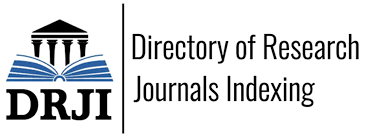Contriving emotional resilience through spirituality in the light of Vedanta
DOI:
https://doi.org/10.18326/ijoresh.v2i1.1-21Keywords:
Vedic philosophy, Humanism, Resilience, Holistic well-beingAbstract
This study examines the Indian perspective on emotions, focusing on the concept of Gunas or Subjective Experiences. Indian Philosophies emphasize the transient nature of emotions and advocate for achieving emotional equilibrium through allegiance to a higher power and surrender. The study concludes that spirituality plays a crucial role in shaping individuals' emotional experiences, contributing to improved mental well-being and reduced narcissistic tendencies. Religious practices foster a sense of security and trust in a "superior being", while emotions involve the feelings experienced towards God or the Divine. Resilience, defined as the ability to adapt in the face of difficulties, is closely linked to these components. The hypothesis posits that an affinity towards the concept of God optimizes both emotions and resilience, fostering well-being across physical, psychological, emotional, and social domains. By investigating the interplay between emotions, religion, and resilience from an Indian perspective, this study contributes to a deeper understanding of their complex relationship and their impact on mental health. The utilization of library research allows for an in-depth exploration of relevant literature and philosophical texts. The insights derived from this research have the potential to inform mental health interventions and promote holistic well-being in diverse cultural contexts. By recognizing the significance of religious and spiritual factors in emotional experiences and resilience, practitioners can tailor interventions that address the specific needs of individuals within different cultural and religious frameworks, ultimately enhancing their overall mental well-being.
Downloads
Published
How to Cite
Issue
Section
License
Copyright
Authors who publish with Indonesian Journal of Religion, Spirituality, and Humanity agree to the following terms:
- Authors retain copyright and grant the journal right of first publication with the work simultaneously licensed under a Creative Commons Attribution License (CC BY-SA 4.0)that allows others to share the work with an acknowledgement of the work's authorship and initial publication in this journal.
- Authors have the right to enter into separate, additional contractual arrangements for the non-exclusive distribution of the journal's published version of the work (e.g., post it to an institutional repository or publish it in a book), with an acknowledgment of its initial publication in this journal.
- Authors are permitted and encouraged to post their work online (e.g., in institutional repositories or on their website) prior to and during the submission process, as it can lead to productive exchanges, as well as earlier and greater citation of published work.
Licensing
This work is licensed under a Creative Commons Attribution-ShareAlike 4.0 International License.









